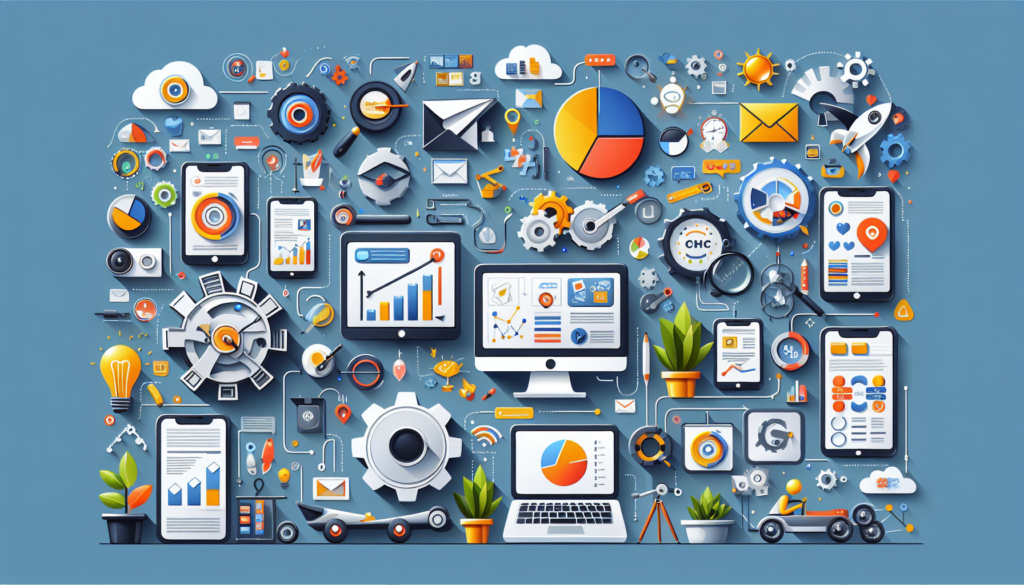In today’s digital age, marketing automation has become an indispensable tool for companies looking to optimize their communication and sales strategy. Through the integration of artificial intelligence technologies, machine learning, and data analytics, automation solutions offer large-scale personalization and unprecedented operational efficiency. This article will delve into the most advanced and recent tools in this field, unraveling their technical mechanisms, practical applications, as well as case studies that demonstrate their impact on the contemporary business landscape.
Marketing Automation Platforms
HubSpot
HubSpot is widely recognized for its robust inbound marketing software, which facilitates the management of content, SEO, social media, and email marketing, all on an integrated platform. Its ability to provide detailed tracking data allows marketing professionals to fine-tune campaigns with precision. Success stories demonstrate significant increases in lead generation and conversion when HubSpot is effectively implemented.
Marketo
Marketo, now part of Adobe, stands out for its focus on personalization and automation across various channels. Its specialty lies in advanced segmentation and the creation of targeted and dynamic campaigns, thus optimizing the customer journey. A relevant case study showcased how Marketo managed to increase the efficiency of content distribution, resulting in higher engagement.
Salesforce Pardot
Salesforce Pardot syncs with Salesforce’s CRM to automate sales and marketing processes, providing a 360-degree view of the customer. It displays advanced lead scoring and nurturing capabilities to guide the prospect through the sales funnel. Companies that have adopted Pardot report notable improvements in the alignment of sales and marketing and ROI.
Artificial Intelligence and Machine Learning
Machine learning and artificial intelligence (AI) are the foundations upon which the new generation of automation tools rests. These technologies allow:
- Predictive Lead Scoring: Lead qualification based on predicting behaviors through the analysis of a large volume of data.
- Dynamic Personalization: Adaptation of websites and email marketing campaigns to the behavior and preferences of users.
- AI-Enhanced Chatbots: Immediate interaction with customers, providing relevant responses based on conversation patterns.
A fascinating example is the use of AI by Drift, a chatbot that enhances the customer experience by identifying visitors and providing personalized conversations in real-time.
Predictive Analytics and Segmentation
Segmentation and predictive analytics are crucial for understanding and anticipating the needs and behaviors of customers. Tools like Optimove combine data science with marketing execution to automate and optimize campaigns across multiple channels. A case study revealed how an e-commerce brand used Optimove to segment its customer base and increase retention.
Integration with Data Platforms
Seamless integration with data platforms like CDPs (Customer Data Platforms) expands the capabilities of automation tools. A CDP can centralize customer data from various sources, providing a single view that enhances personalization and consistency across all touchpoints. Segment, for example, allows for the collection, storage, and leveraging of customer data in real time to drive more accurate automated campaigns.
Compliance and Security
With growing concern over data privacy, automation tools must ensure compliance with regulations like GDPR and CCPA. Transparency in the use of data and information security have become non-negotiable elements in the assessment of any automation solution. This is evident in platforms like Act-On, which has established robust security policies and regulatory compliance.
Prospective: The Future of Marketing Automation
Looking ahead, marketing automation is expected to evolve towards greater contextual intelligence, where AI will be able to foresee customer needs with more accuracy. Moreover, deeper integration with emerging technologies like the Internet of Things (IoT) and virtual/augmented reality (VR/AR) is anticipated, opening up new frontiers in customer experience.
In conclusion, marketing automation is on an upward trajectory, bringing companies closer to an almost intuitive understanding of their customers. By keeping up-to-date with the latest advancements in these tools and their applications, organizations can ensure a competitive edge in an increasingly saturated and data-driven market.

